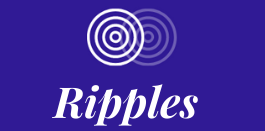January 21st 2021
"While sitcoms with sassy teens stomping off and slamming doors, screaming “Why won’t you listen to me?” is an old trope, we know that many adolescents still struggle with feeling heard and being taken seriously; particularly those who have endured traumatic events. Youth exposed to traumatic events are more susceptible to a myriad of behavioural health concerns including PTSD, depression, anxiety, self-harm and suicidality leading to higher rates of truancy and drop-out, poorer physical health, substance use, addiction and engaging in high-risk sexual behaviour (Flaherty, et al., 2013, Iverson, et al., 2018).
Despite these well-established correlations, adolescents are notoriously underserved by behavioural health providers. Almost 25% of young people meet criteria for serious mental illness, but less than 10% report using subsidised mental health services (Gulliver, Griffiths, & Christensen, 2010). This gap between need and service access leads Ellinghaus, Truss, Siling, Phillips, Eastwood, Medrano & Bendall (2019) to explore the barriers impeding teens from receiving quality mental health services."
Conclusions
"The authors’ discussion of results is best viewed through a lens of trauma-informed care principles (SAMHSA, 2014). The findings within the sub-theme of structural barriers echoed themes in other studies in the industry (Bendall et al., 2018; Bush, 2018; Damian et al. 2018; Stewart et al., 2017). Importantly, this study is hearing from adolescents who have experienced these barriers themselves rather than service providers, or adult consumers.
Another noteworthy difference with this study is the identification of clinician-client relational barriers from the young person’s perspective. Research on the importance of the therapeutic relationship when working with victims of trauma has mainly utilised the service provider’s perspective (Damian et al., 2018; Stewart et al., 2017; Chung et al., 2012).
With physical safety within the therapeutic relationship assumed, a primary trauma-informed principle emerging from the analysis was the importance of trustworthiness of the service provider. Due to the barriers within the system itself, adolescents are already justifiably sceptical of those who they eventually access.
Lack of choice and collaboration in the treatment process was also a glaringly apparent barrier highlighted in the postings. As young people felt talked down to or completely unheard, this dismissiveness served to further damage an already fragile relationship, even after several sessions into treatment.
Young people clearly reported feeling a lack of empowerment within the therapeutic relationship. The inherent power differential that, from many posters’ perspectives, is unrecognised by their provider, sets the young person in a defensive position from the onset. Additionally, adolescents struggling from traumatic experiences have often developed a fawning response to authority figures. This defence strategy of pleasing their aggressor may have helped them survive during traumatic and abusive events in their past, but it must be recognised and deactivated if the youth is to obtain desperately needed healing.
There are grave implications for young people when their providers do not take the time to establish safety, demonstrate themselves as trustworthy, provide them with appropriate treatment choice, collaborate with them in treatment planning or empower adolescents with trauma histories to advocate for themselves honestly. Without addressing this elephant in the room, adolescents report not disclosing important details about traumatic experiences or omitting them altogether. They also indicate they feel even more depressed, anxious, or suicidal after negative relational experiences with their providers, exacerbating the very issues leading them to seek treatment."
